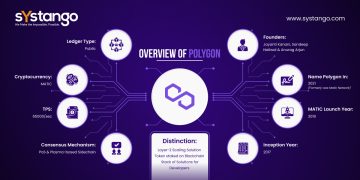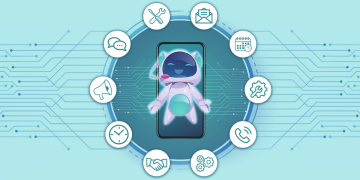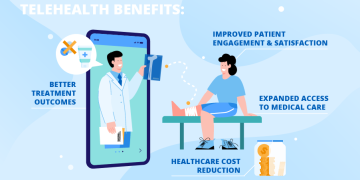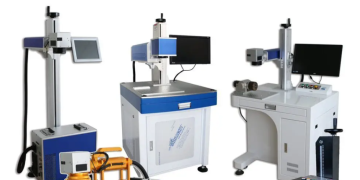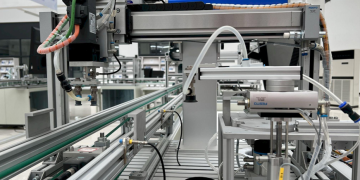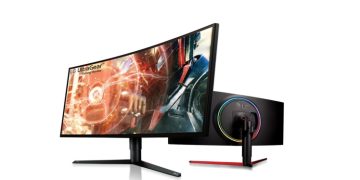As the world increasingly embraces renewable energy, solar power has become one of the most accessible and reliable sources of clean energy available today. Among the various types of solar technologies, CIGS solar panels stand out for their flexibility, efficiency, and versatility in a wide range of applications. CIGS, which stands for Copper Indium Gallium Selenide, is a thin-film solar technology that offers unique benefits compared to traditional crystalline silicon solar panels.
In this article, we’ll explore the uses, importance, and reasons why CIGS solar panels are a smart choice for those seeking sustainable energy solutions, particularly in mobile, off-grid, and flexible installations.
What Are CIGS Solar Panels?
CIGS solar panels are a type of thin-film photovoltaic technology that uses copper, indium, gallium, and selenium as the primary materials for absorbing sunlight and converting it into electricity. Unlike conventional silicon-based solar panels, which are typically rigid and bulky, CIGS solar panels are flexible and lightweight, making them ideal for installations where traditional panels may not be practical or desirable.
These solar panels are known for their ability to perform well in low-light conditions and at varying angles, providing a more versatile energy solution. The flexibility of CIGS panels allows them to be applied to curved or irregular surfaces, which makes them particularly useful in applications like RVs, boats, and portable energy systems.
Common Uses of CIGS Solar Panels
The versatility and adaptability of CIGS solar panels make them suitable for a wide range of applications. Below are some of the most common uses for this innovative solar technology:
1. Portable Power Solutions
One of the key advantages of CIGS solar panels is their lightweight and flexible design, which makes them ideal for portable power solutions. Whether you’re hiking, camping, or traveling in remote areas, CIGS panels can be easily rolled up, transported, and deployed to generate electricity wherever sunlight is available. They can be used to charge portable batteries, run small appliances, or keep devices like smartphones, tablets, and GPS systems powered during outdoor adventures.
For campers and adventurers who need reliable off-grid power without adding too much weight to their gear, CIGS solar panels provide a compact and efficient way to harness solar energy.
2. RV and Camper Van Solar Systems
For RV owners and van life enthusiasts, CIGS solar panels offer an excellent solution for generating renewable energy on the road. The flexible nature of these panels allows them to conform to the curved roofs of RVs and camper vans, maximizing available surface area for energy collection. Since CIGS panels perform well in less-than-ideal lighting conditions, they can continue to generate electricity even on cloudy days or in shaded areas, ensuring that your off-grid power needs are met.
In this application, CIGS solar panels are typically used to charge deep-cycle batteries that power lights, fans, refrigerators, and other essential systems in the RV, providing a clean and quiet alternative to fuel-powered generators.
3. Boats and Marine Applications
Boating enthusiasts can also benefit from CIGS solar panels, particularly because of their resistance to harsh environments like saltwater, humidity, and exposure to sunlight. Traditional solar panels can be too heavy or rigid to fit on the curved surfaces of boats, but CIGS panels offer the flexibility needed to install solar power systems in marine environments.
With CIGS solar panels, boaters can generate electricity to power navigation equipment, lights, communication systems, and even small appliances while out on the water. This not only provides greater energy independence but also reduces the need for noisy and environmentally harmful fuel-powered generators.
4. Off-Grid Living and Emergency Backup
For those living off-grid, CIGS solar panels provide a reliable source of renewable energy that can be easily integrated into small-scale solar power systems. Their ability to generate power in low-light conditions and from less-than-ideal angles makes them well-suited for off-grid applications, where traditional power sources may be unavailable or unreliable.
In emergency situations, such as during natural disasters or extended power outages, CIGS solar panels can serve as a valuable backup energy source. Their lightweight, portable design allows them to be quickly deployed to charge batteries, power essential devices, or run small systems until regular power is restored.
5. Flexible Solar Applications
One of the most compelling uses of CIGS solar panels is in applications where flexibility is essential. Since CIGS panels can be bent or shaped to fit unusual surfaces, they are ideal for use in locations where rigid panels would not be practical. This includes curved roofs, tents, backpacks, and even wearable technology that incorporates solar charging capabilities.
This flexibility opens up a wide range of possibilities for innovative solar-powered products and applications, providing a cleaner and more sustainable way to meet energy needs in a variety of environments.
Importance of CIGS Solar Panels
1. Flexibility and Adaptability
One of the standout features of CIGS solar panels is their flexibility, which allows them to be installed in places where traditional rigid panels cannot be used. Whether it’s the roof of an RV, a boat, or a curved architectural surface, CIGS panels conform to the shape of their mounting surface without compromising their efficiency. This makes them a perfect choice for mobile and off-grid applications where space and weight are critical considerations.
The ability to adapt to curved or irregular surfaces provides far more installation options, enabling users to maximize solar energy collection in situations where conventional panels might not be feasible.
2. Performance in Low-Light Conditions
Another key advantage of CIGS solar panels is their performance in low-light or diffused sunlight conditions. Unlike traditional silicon-based panels, which require direct sunlight to operate at maximum efficiency, CIGS panels can generate power even in cloudy or partially shaded environments. This makes them particularly useful in regions that experience frequent overcast weather or in applications where solar exposure may be inconsistent.
For users who rely on solar energy in off-grid or emergency situations, this ability to continue generating power under less-than-optimal conditions is a crucial benefit, ensuring a more reliable source of energy.
3. Lightweight Design
Traditional solar panels can be heavy and difficult to transport, especially when large numbers are required to meet energy needs. In contrast, CIGS solar panels are extremely lightweight, making them easy to carry, install, and move as needed. This is especially important for portable applications, such as camping, boating, and hiking, where minimizing weight is essential for mobility.
The lightweight design also makes CIGS panels easier to install on structures that may not be able to support the weight of traditional panels, such as certain types of roofs, tents, or temporary installations.
4. Durability and Longevity
Despite being lightweight and flexible, CIGS solar panels are known for their durability. They are designed to withstand a range of environmental conditions, including exposure to rain, wind, and extreme temperatures. Many CIGS panels are also resistant to UV degradation and corrosion, making them ideal for long-term outdoor use in marine environments or other harsh conditions.
The longevity of CIGS panels ensures that users can rely on them for years without the need for frequent replacements, providing a cost-effective and low-maintenance renewable energy solution.
5. Environmentally Friendly
Like all solar panels, CIGS solar panels contribute to reducing carbon emissions by providing a clean, renewable source of energy. The materials used in CIGS panels, such as copper, indium, and gallium, are more abundant and less energy-intensive to mine and process than the materials used in traditional silicon panels. Additionally, the thin-film nature of CIGS technology means that less raw material is required to produce the same amount of energy as larger, bulkier panels.
For those who are looking to reduce their environmental footprint, CIGS solar panels offer a more sustainable option for harnessing the power of the sun.
Reasons to Choose CIGS Solar Panels
1. Ideal for Portable and Mobile Applications
The lightweight, flexible design of CIGS solar panels makes them the perfect choice for portable and mobile applications. Whether you’re an RV owner, a boater, or an outdoor enthusiast, CIGS panels offer an easy way to generate power on the go without adding significant weight or bulk to your equipment. Their portability also makes them ideal for emergency preparedness kits, ensuring that you have access to renewable energy when you need it most.
2. Adaptable to Various Installations
CIGS panels’ ability to conform to curved or irregular surfaces makes them a versatile choice for a wide range of installations. Whether you’re looking to install solar panels on a non-traditional roof, a boat deck, or a tent, CIGS panels offer the flexibility you need to maximize solar energy collection in challenging environments.
3. Cost-Effective and Long-Lasting
While the upfront cost of CIGS solar panels may be comparable to traditional panels, their long lifespan and low maintenance requirements make them a cost-effective solution in the long run. Their durability ensures that they can withstand harsh weather conditions without frequent replacements, and their ability to perform well in low-light conditions means that they generate more power over time, even in less-than-optimal settings.
Conclusion
CIGS solar panels provide a flexible, efficient, and environmentally friendly solution for harnessing solar energy. Their lightweight design, ability to perform in low-light conditions, and adaptability to various surfaces make them an ideal choice for a wide range of applications, from RV and boat systems to portable power solutions and off-grid living. Whether you’re looking for a sustainable way to power your next adventure or seeking a reliable backup energy source, CIGS solar panels offer a practical, long-lasting solution for all your renewable energy needs.














